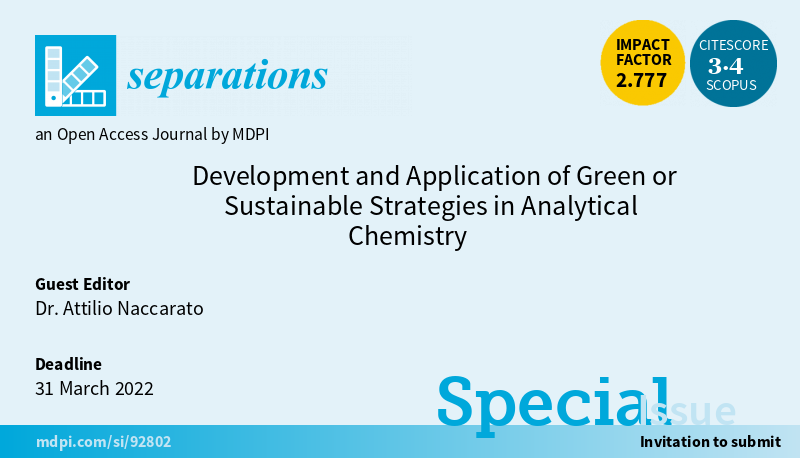Analytical chemistry is bound to face growing challenges in the near future, especially for the quantification of trace analytes in complex matrices. Although the development of increasingly sensitive and specific instrumental techniques has achieved remarkable results, sample preparation is still a fundamental step, often limiting the whole workflow.
In the context spawned by the recent international environmental policies that are responsive to the rapport of human activities with the surrounding environment, chemistry cannot hesitate to give its contribution. Almost pioneeringly, in analytical chemistry, we have been talking for some time about “green analytical chemistry”, its guiding principles, and the development of eco-friendly analytical approaches. However, the new and still open challenge is to advance not only in eco-compatibility but mainly in eco-sustainability, rooting the future of analytical chemistry in new paradigms which are founded on Life Cycle Thinking (LCT) and the resulting Life Cycle Assessment (LCA) of activities.
This Special Issue aims to collect studies that show the progress in analytical chemistry based on the arguments previously raised and discussed, with a particular reference to eco-compatibility and eco-sustainability. The expected contributions (original research papers and review articles) can include the development of low environmental impact methods and/or techniques or their applications, hyphenated technology, ambient-MS, but also interdisciplinary studies where the role of analytical techniques is well defined. In all the presented studies, it is appreciated that the environmental gain is clearly outlined.

